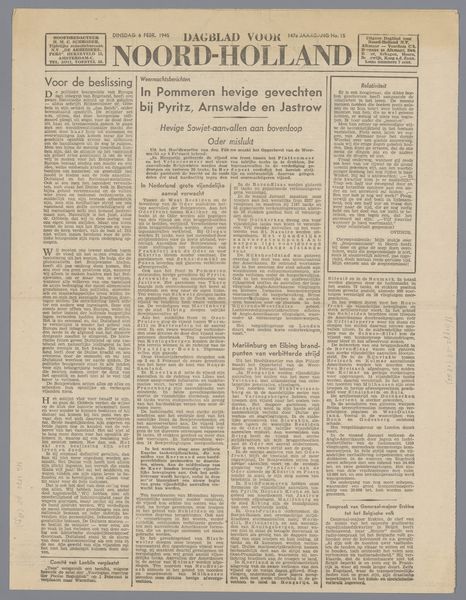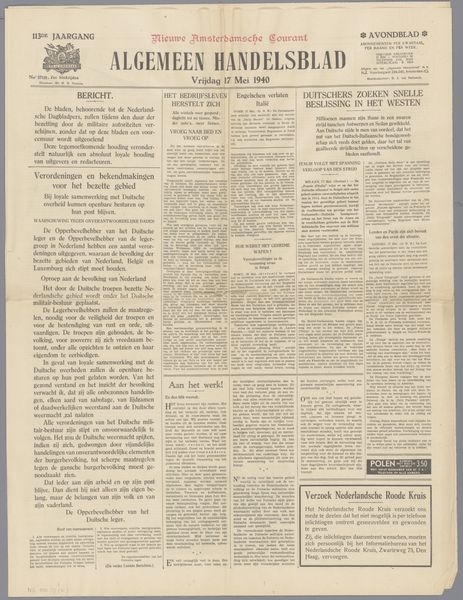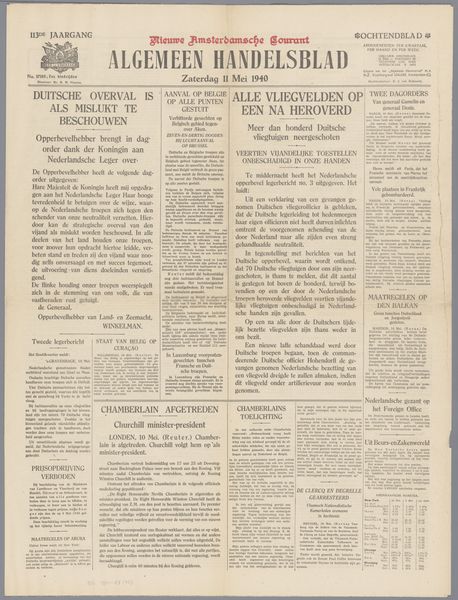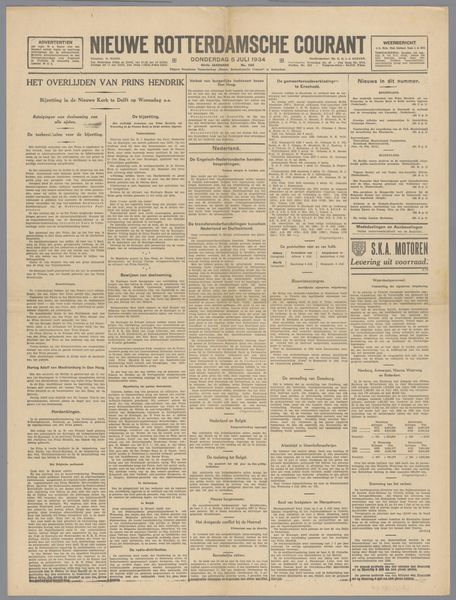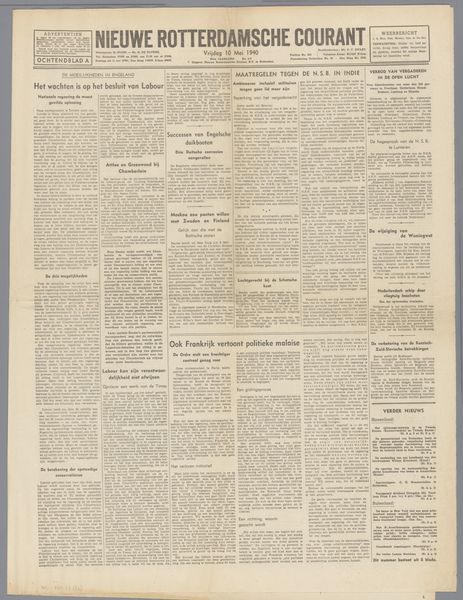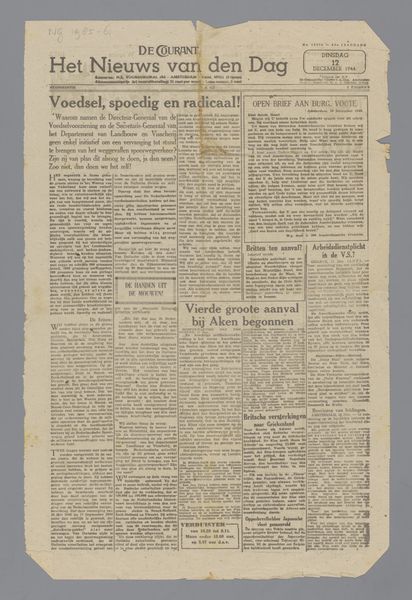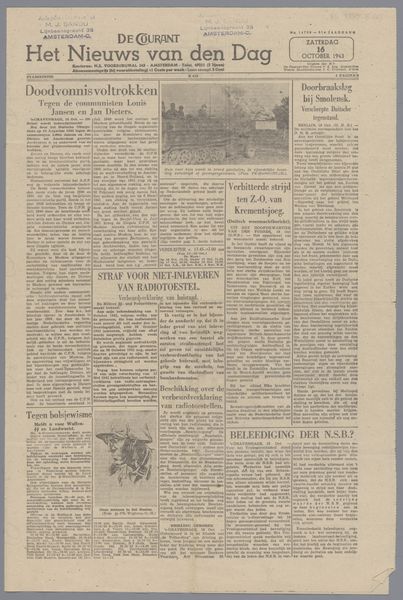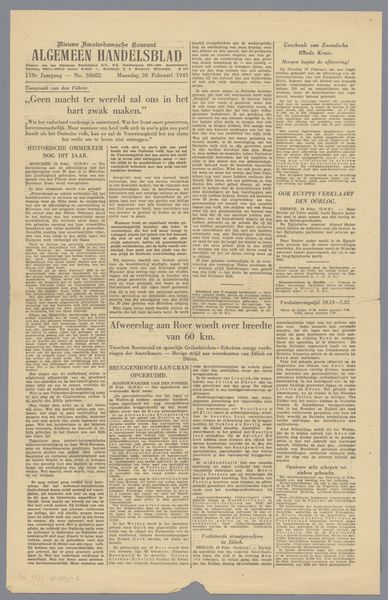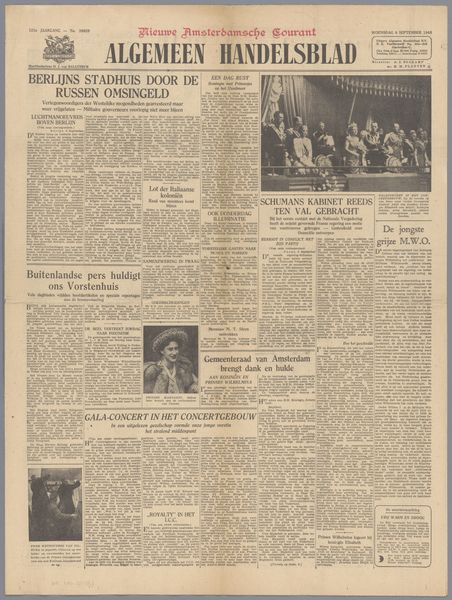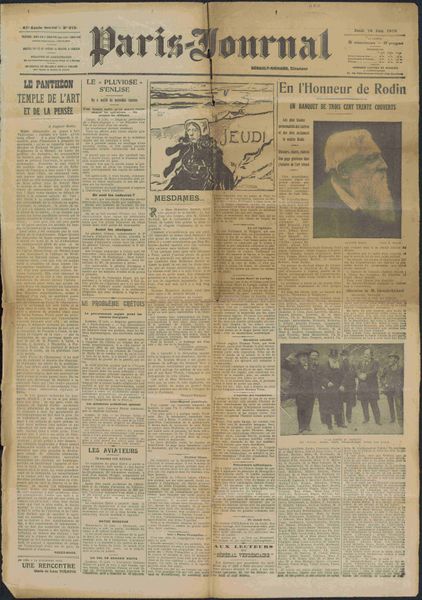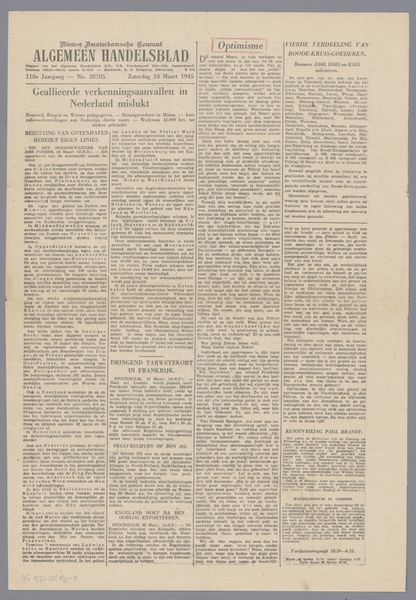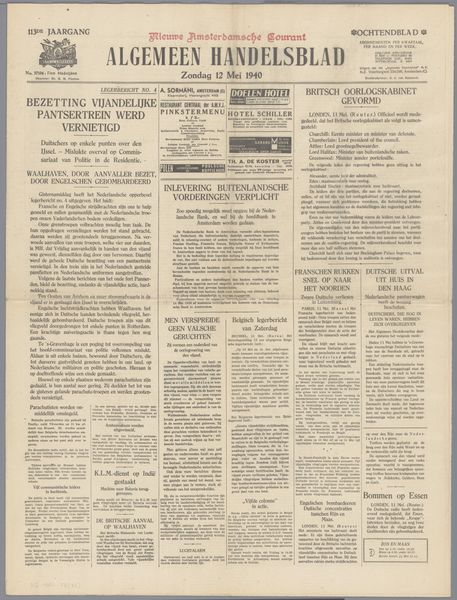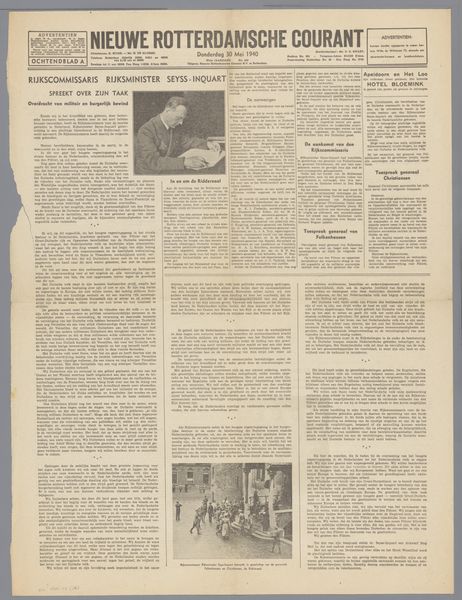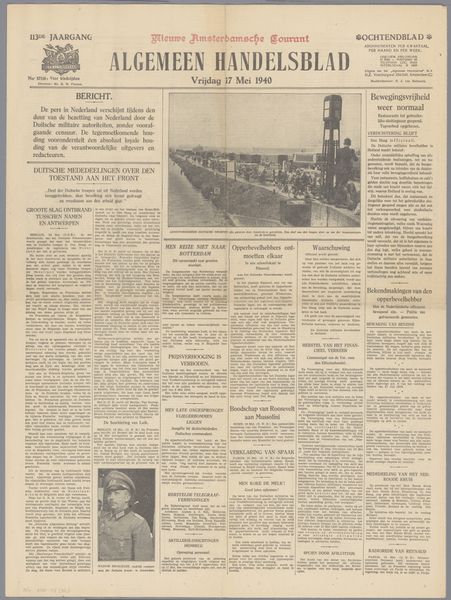
print, paper, photography
#
portrait
#
old-fashioned
#
aged paper
#
page thumbnail
#
newspaper
# print
#
paper
#
photography
#
paragraph style
#
journal
#
fading type
#
newspaper layout
#
stylized text
#
history-painting
#
handwritten font
#
modernism
#
realism
Dimensions: height 60 cm, width 45.5 cm
Copyright: Rijks Museum: Open Domain
Editor: We’re looking at "Nieuwe Rotterdamsche Courant," a newspaper print, likely from September 1, 1939. It presents a stark image, literally, with its black and white photography and dense text blocks. The visible age of the paper conveys a strong sense of history. What stories do you see in this object? Curator: Indeed. What strikes me is how this everyday object, a newspaper, instantly transports us to a specific historical moment: the very beginning of World War II. Consider how this newspaper, as a media outlet, played a crucial role in shaping public opinion and disseminating information during a time of immense social and political upheaval. Do you see how the large headline announcing German troops entering Poland sets the tone? Editor: Yes, it’s impossible to miss that headline! And the photograph accompanying it… chilling. How did newspapers influence public perception of the war at that early stage? Curator: Think about the power the press held, framing narratives and influencing public sentiment about the conflict. Newspapers, often aligned with specific political ideologies, served as powerful tools for both informing and persuading the populace, thereby mobilizing a collective understanding – or misunderstanding – of the war’s unfolding events. This issue itself is a testament to the anxieties of the era. Consider its display in public spaces and later archival storage; how has it played a role in constructing collective memory? Editor: That’s a good point – it's not just an information source but a historical artifact that’s been deliberately preserved. I hadn’t considered its life beyond the immediate news cycle. Thanks, I'll certainly think more deeply about how socio-political elements shape a piece like this. Curator: And I will remember to see such ordinary objects for the window into history that they provide.
Comments
No comments
Be the first to comment and join the conversation on the ultimate creative platform.
